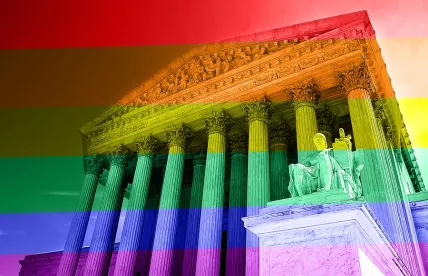On June 15, 2020, the United States Supreme Court, by a vote of 6 – 3, ruled that federal law prohibits employers from terminating employees because of their sexual orientation or gender identity.
Title VII of the Civil Rights Act of 1964
Title VII of the Civil Rights Act of 1964 has protected employees from various forms of discrimination, including that based on sex. For example, sexual harassment in the workplace is unlawful based on the fact that it is a form of sexual discrimination. However, until the June 15th ruling in Bostock v. Clayton County, Georgia, No. 17-1618, 590 US ___ (2020), the issue of whether Title VII’s protections against sexual discrimination extended to sexual orientation or gender identity was an open question.
Bostock v. Clayton County, Georgia, was the consolidation of three lower court appeals. Two of the lower court cases, Bostock and Zarda, involved terminations of employees for being “gay.” The third involved a funeral home that hired a male employee, Stephens, who later informed the employer that he planned to live and work as a woman (a transgender case). In Bostock, which arose out of the Eleventh Circuit, the Court of Appeals ruled that Title VII did not afford protection to an employee based on the employee’s sexual orientation, whereas in Zarda which arose out of the Second Circuit, and Stephens, which arose out of the Sixth Circuit, the Courts of Appeal decided that Title VII did afford such protection.
Sexual Orientation and Gender Identity Protections
What has attracted the attention of the press and commentators is that the majority decision was authorized by Associate Justice Gorsuch, who was joined by Chief Justice Roberts, one of the Court’s four conservative justices. Justices Alito, Thomas, and Kavanaugh dissented.
Given that the Chief Justice dissented on the gay marriage case, his vote here was significant. However, the surprise was that Gorsuch would be in the majority. This decision could signal how the Court may vote on federal protections to persons whatever their sexual orientation or gender may be.
For a majority of states, such as New Jersey, New York, and Pennsylvania, their own state laws already protect employees from discrimination based on sexual orientation or gender identity. Consequently, the Bostock decision will not change the need that employers already have, not to base decisions on their employees’ sexual status.




 />i
/>i

